Lenovo Yoga Book 9i: Making a case for situational computing
9 min. read
Published on
Read our disclosure page to find out how can you help Windows Report sustain the editorial team. Read more
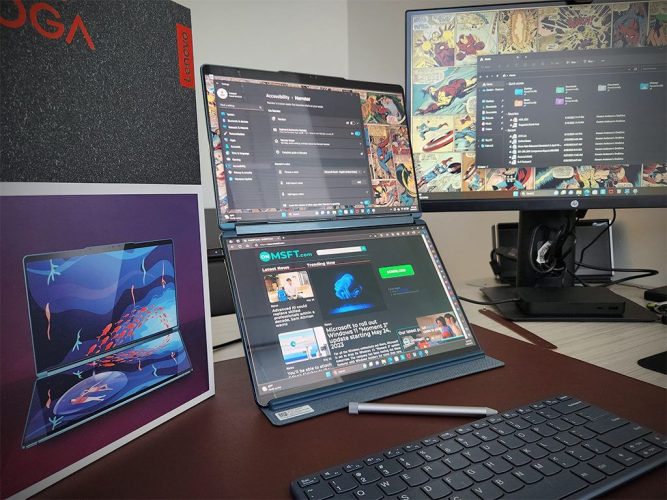
Starting at $1,999.99
In 2023, Lenovo has seemingly pulled a reverse Microsoft move of going from a single folding laptop concept to a dual full-screen design that offers two 13.3-inch OLED panels on display.
While it’s rumored that Microsoft is working its way back to a more traditional single screen folding phone from its overly ambitious dual screen Surface Duo and Duo 2 offerings, which both saw abysmal adoption, it seems a dual screen concept may work better for Lenovo than its previous single screen folding X1 Fold project.
| Yoga Book 9i (13″ Intel) | |
| Processor | 13th Generation Intel® Core™ i7-1355U Processor (E-Core Max 3.70 GHz, P-Core Max 5.00 GHz with Turbo Boost, 10 Cores, 12 Threads, 12 MB Cache) |
| Operating System | Windows 11 Home |
| Windows 11 Pro – Lenovo recommends Windows 11 Pro for business. | |
| Graphics | Integrated Intel® Iris® Xe Graphics |
| Memory | 16 GB LPDDR5X 6400MHz |
| Storage | Up to 1 TB PCIe SSD Gen 4 |
| Battery | Up to 7.3 hours* (MM18) |
| Up to 14 hours (single-screen video playback) | |
| Up to 10 hours (dual-screen video playback) | |
| Rapid Charge support | |
| Audio | 2 x 2W + 2 x 1W Bowers & Wilkins speakers |
| Dolby Atmos® | |
| Camera | 5MP IR webcam with e-privacy shutter |
| Ports/Slots | Left: |
| Intel® Thunderbolt™ 4 | |
| Right: | |
| 2 x Intel® Thunderbolt™ 4 (AOU BC 1.2 support) | |
| USB port transfer speeds are approximate and depend on many factors, such as processing capability of host/peripheral devices, file attributes, system configuration and operating environments; actual speeds will vary and may be less than expected. | |
| Bluetooth | Bluetooth® 5.1 |
| WiFi | WiFi 6E* 802.11AX (2 x 2) |
| * 6GHz WiFi 6E operation is dependent on the support of the operating system, routers/APs/gateways that support WiFi 6E, along with the regional regulatory certifications and spectrum allocation. | |
| Display | 2 x 13.3″ 2.8K (2880 x 1800) OLED, 400 nits, 16:10 aspect ratio, 100% DCI-P3, PureSight, touchscreen |
| Dimensions (H x W x D) | 15.95mm x 299.1mm x 203.9mm / 0.63″ x 11.78″ x 8.03″ |
| Weight | Starting at 1.34kg / 3.15lbs |
| Pen | Lenovo Digital Pen 3 |
| Keyboard | Bluetooth® keyboard |
| Color | Tidal Teal |
| Certifications | CarbonNeutral® |
| ENERGY STAR® | |
| EPEAT™ Gold | |
| TÜV Rheinland Eyesafe | |
| Security | Webcam privacy shutter |
| Windows Hello via IR Camera | |
| Preloaded Software | Dolby® Access |
| Lenovo Vantage | |
| McAfee® LiveSafe™ (trial) | |
| Microsoft Office 365 (trial) | |
| Yoga Book User Center | |
| What’s in the Box | Yoga Book 9i 13” Intel |
| Lenovo Digital Pen 3 | |
| Folio Stand | |
| Bluetooth® Keyboard | |
| Bluetooth® Mouse | |
| Quick Start Guide | |
| AC adapter | |
Look and Feel
Unopened the Lenovo Yoga Book 9i is almost identical to the company’s other Yoga 9i efforts with the new rounded-Comfort Edge polished corners and minimalist luxury design.
Dimensions wise, the Yoga Book 9i has a similar footprint to Yoga 9, MacBook Pro 13-inch, or a Surface Laptop while weighing just a tad lighter than all of them.
The iconic multipoint Rotating Sound Bar supporting Bowers & Wilkins speaker technology is present towards the back of the Yoga Book 9i as it is with the more traditional Yoga 9 line up.
The Yoga Book 9i noticeably comes in a bespoke new blue aluminum color that departs from the more traditional greys, silvers and even Oatmeal beige options Lenovo has offered in the past.
Around the sides of the device resides Lenovo’s commitment to minimalism when it comes to port selections with only three Thunderbolt 4 USB-C options. Once again, Lenovo has omitted the headphone jack from its latest PC offering.
While the Yoga Book 9i does present often as a tableted computing experience, Lenovo has opted not to offer physical volume buttons on the outer chassis.
The Yoga Book continues its visible divergence once the lid is lifted, and users are presented with two glass displays instead of a single display accompanied by a physical keyboard. Where a keyboard normally sits for most laptops, an additional 13.3-inch OLED 16:10 panel awaits with support for pen, multitouch, and 2.8K resolution.
However, true to its Yoga branding and 2-in-1 nature the dual screens can be folded back 360 degrees from either starting point which still enables users to prop up the device in tent, tablet, laptop, and now book mode.
Both displays present a low-bezel profile allowing most of the 13.3-inch display to shine in all of its 400-nit brightness as well as offering practical sized keyboard experience for anyone who can master touch typing.
Unlike other laptops, the Lenovo Yoga Book 9i computing experience comprises of a full set of accessories that include a 4.5 x 11.6-inch Bluetooth keyboard and folding travel cover incased in fabric.
The keyboard is reminiscent of Microsoft’s Designer Compact Keyboard and is designed to work both on the physical screen of the Yoga Book 9i as well as from a distance. The typing experience on the included Bluetooth keyboard is decent but a bit shallow due to the slim profile. The most frustrating part of the keyboard is the up and down arrows being squat and practically flush with the edge of the board, which takes some getting used to.
When traveling with the Yoga Book 9i and all accessories included, users should be prepared for an almost 4lb footprint in any bag.
Experience
Unlike more traditional clamshell laptops, the Yoga Book 9i’s experience comes with a bit of a learning curve that extends beyond simply opening the lid and typing.
There is a bit of a ritualistic set up process to get the full benefit out of the Yoga Book 9i’s experience that includes setting up the keyboard, the stand, and finding the right posture for the situation.
For most basic situations, users can simply open the Yoga Book 9i and make use of the virtual keyboard without having to worry about dragging along a travel case and Bluetooth keyboard. In instances where the virtual keyboard is the go-to option for the typing experience, users will need to know that an eight finger swipe up from the bottom of the second screen will summon the keyboard.
To its credit, Lenovo provides prompts to walk users through the initial setup and gestures to get the cursory computing experience of this new device.
The virtual keyboard is passable for most circumstances with great palm rejection and decent accuracy if the user is proficient at touch-typing.
Lenovo added support for three-levels of haptic feedback to assist users in navigating the virtual keyboard more like a physical one. The virtual keyboard
The more impressive aspect of the virtual keyboard is the touch pad, it is resizable and accurate, providing an enjoyably similar experience to that of a physical touchpad that includes multi-fingered gesturing, optional clicking sounds, and dedicated left and right buttons.
However, for a more traditional typing experience, users will need to load the second screen with the Bluetooth keyboard that attaches to the display with magnets that are aligned along the side of the laptop.
The Bluetooth keyboard can be shifted from top of the display to the bottom relatively easy. The position of the Bluetooth keyboard can unlock a secondary use case with the screen that includes a widget pane that appears at the top of the screen.
There are only a handful of supported widgets that appear in the area visible above the keyboard, but the functionality is useful for checking items like schedules in the calendar as well as news from MSN.
As for typing on the Bluetooth keyboard. key travel is decent the keys themselves are firm and responsive.
Moving beyond typing, the dual screen functionality of the Yoga Book will most likely remain understated by lots of users because its flexibility is entirely situational.
Similar to a Yoga PC, there is the tent mode for watching entertainment or presenting content, there is portrait mode that’s achieved by making use of the fabric travel cover that can fold into a stand allowing users such as day traders to have portable workstation. There is always tablet mode, but Lenovo still hasn’t managed to make a folding laptop that’s enjoyable as a tablet so far, and lastly, there is book mode, which is great for anyone who handles PDFs, Word Docs, eBooks, digital comics, and more.
The most practical use case of the Yoga Book 9i’s is in portrait mode where users get a compact dual screen workstation, as well as for anyone dealing with graphic and photo editing as well as for artists and photographers when the device is laid flat.
Performance
The Lenovo Yoga Book 9i is more than a handful of folding gimmicks and dual screens, with performance on par with more traditional clamshell laptops such as Asus Zenbook S13, HP Dragonfly Pro, and the LG Gram 2023.
Due to its thermal construction, Lenovo opted for a U-Series chip with support for core i5 and i7 options which has a lower peak performance ceiling than other in-class laptops but for daily data processing there shouldn’t be any noticeable difference with the competition.
Workflows with some mixture of web browsing, office productivity, video/tele conferencing, email triage, and light graphics editing will find the Yoga Book 9i adequate, while extensive content creators, CAD users, and engineers may have look for another device for daily use.
In my day-to-day use of the Lenovo Yoga Book 9i serviced most of my needs while never getting too hot or too loud. Performance on the Yoga Book 9i was snappy, and the only slowdown was user-based as I got used to snapping windows between displays.
As for battery life, the Yoga Book 9i holds up surprisingly well considering its powering two OLED screens. During a moderate day of work, I was able to squeeze out around seven hours, and on more robust days I got around 5hrs before needing to charge.
Summary
The Lenovo Yoga Book 9i is a very interesting and compelling new form-factor for situational use-cases. While it can be used in a more clamshell orientation and without all of the accessories it really shines when users can find their ideal posture and accessory set up.
The Yoga Book 9i doesn’t beat an all-around traditional clamshell laptop or even a 2-in-1 detachable, but it improves upon the 2-in-1 convertible concept while also offering additional use-cases for niche experiences. As I mentioned, day traders, engineers, artists, C-suite level executives who deal in docs all day, lawyers, and others may find the trade off in price and traditional convenience worth a hyper-focused experience.
There is a lot that Lenovo can do to improve the adaptive software for the managing two screens and ideally Microsoft will work with them to enhance the concepts of Windows 10 X and bring them to the next version of Windows to help support devices like the Yoga Book 9i in the future.
As it stands, the Yoga Book 9i may be hamstrung by its touch-typing learning as its attempts to bridge utility over convenience.











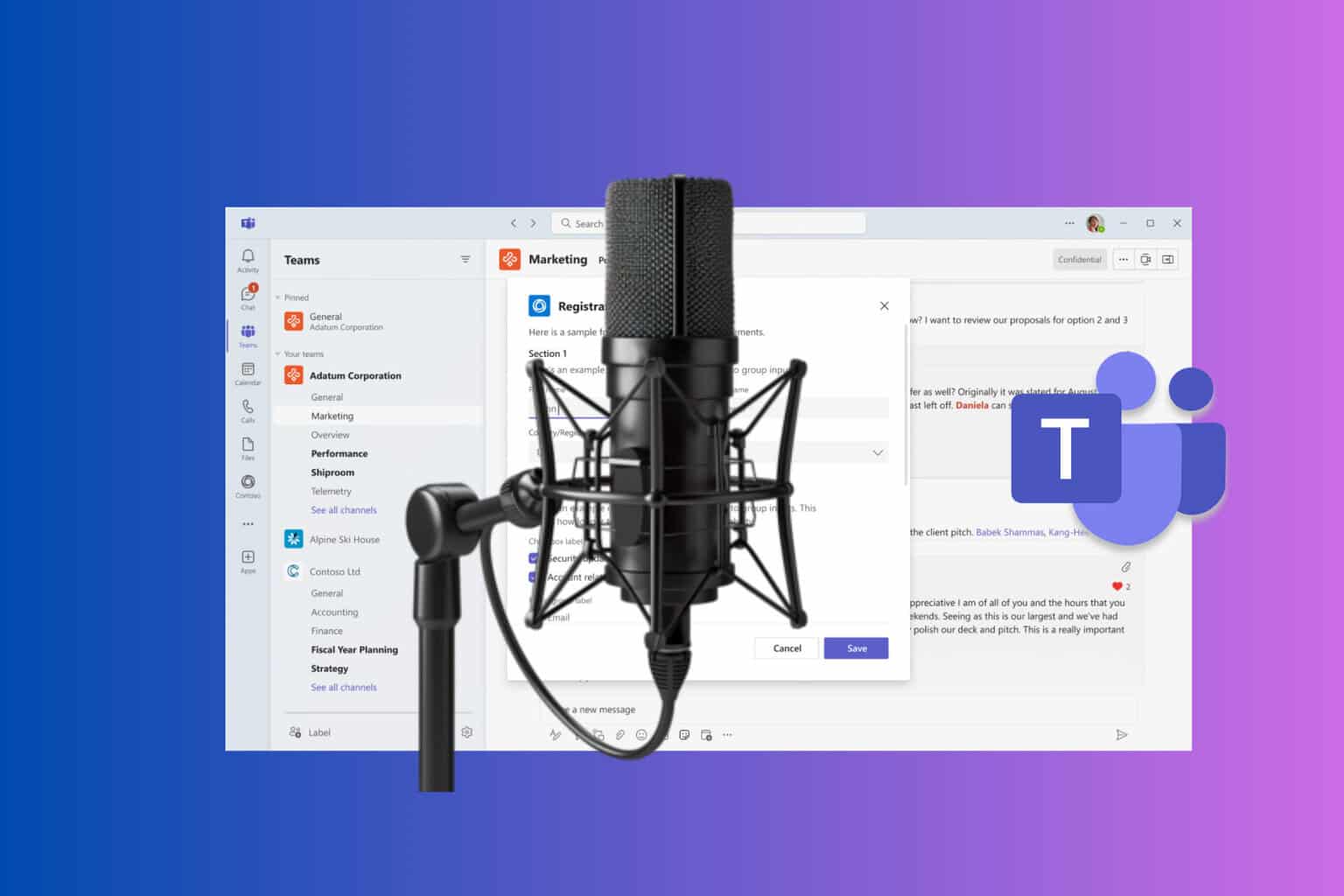

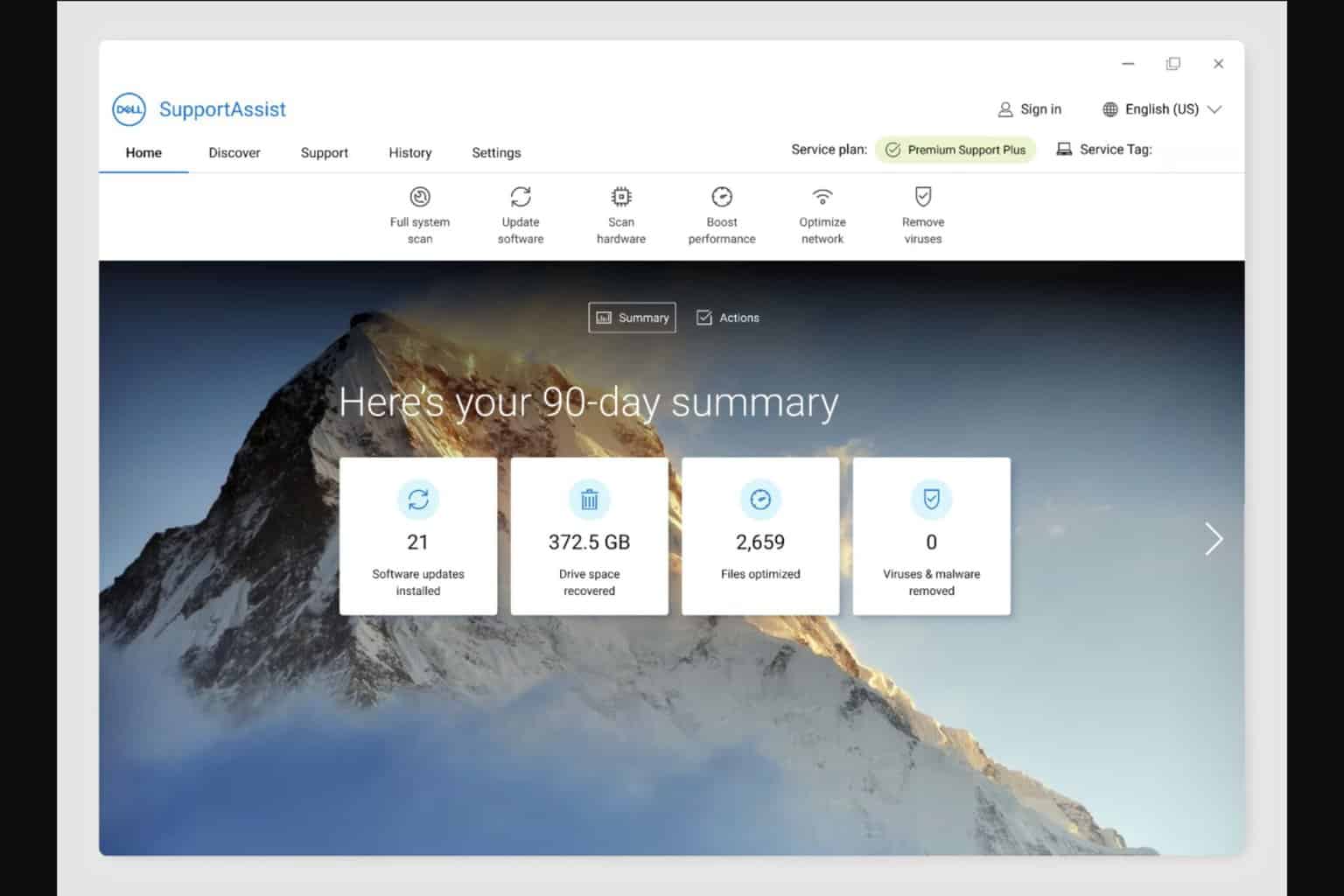
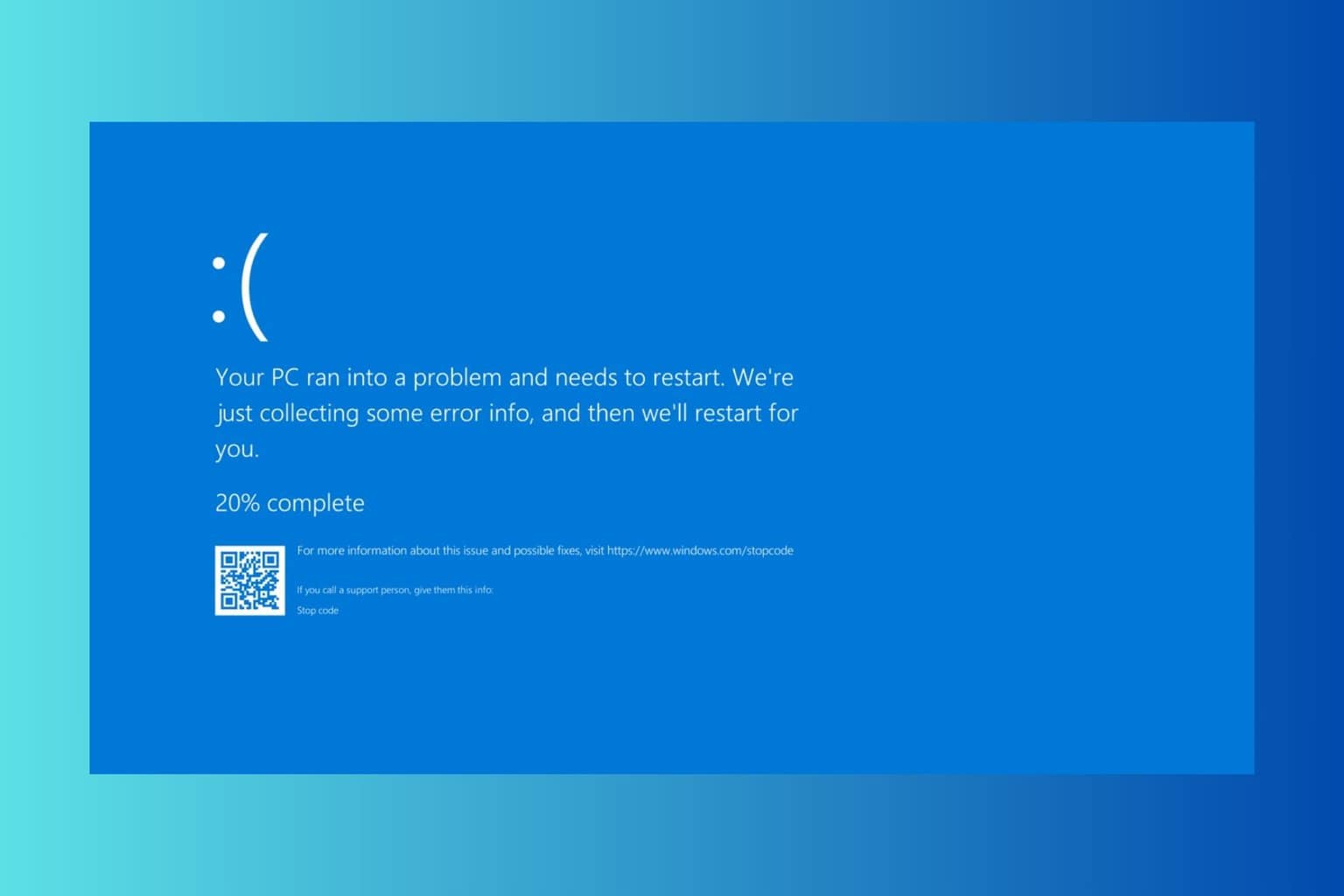
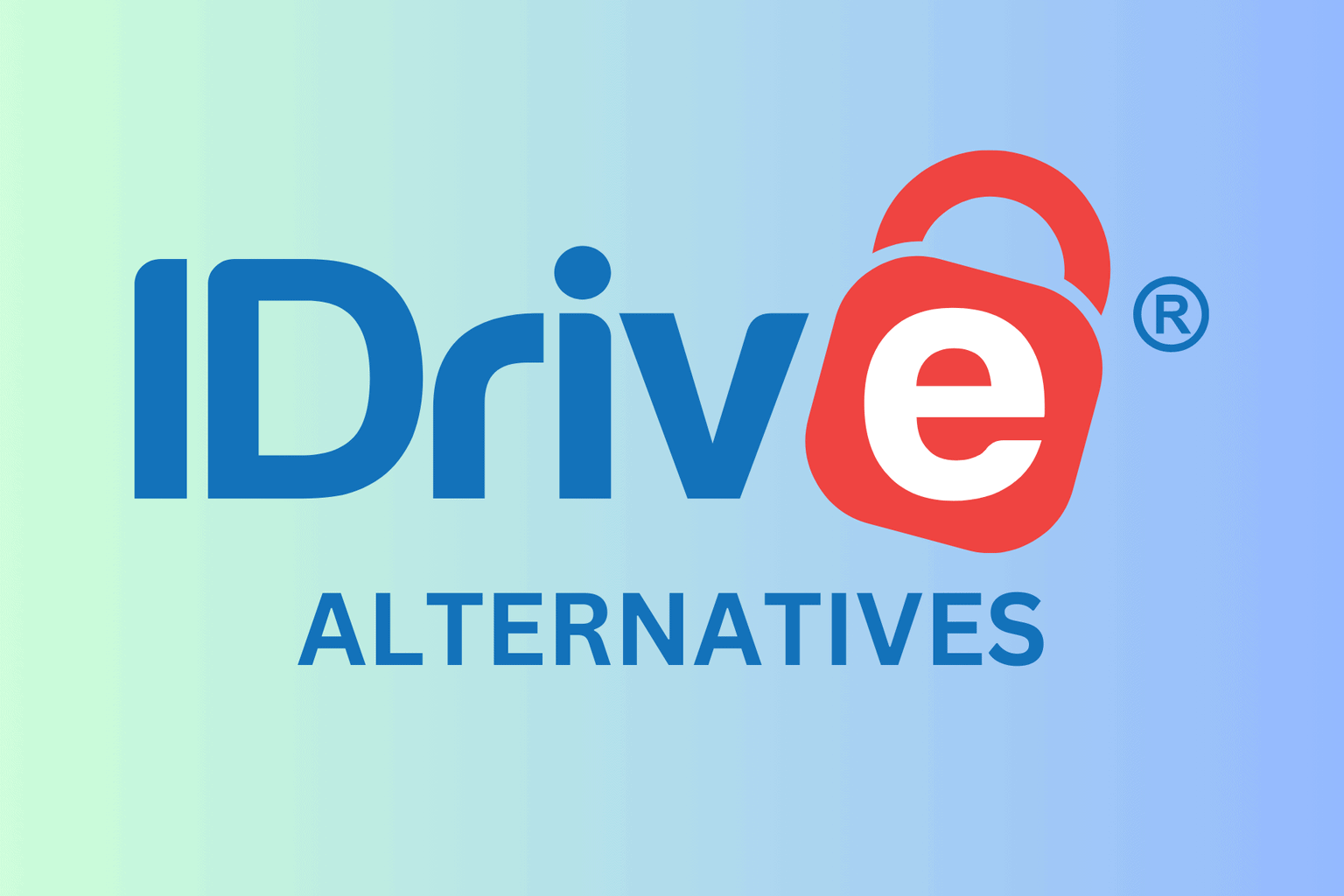
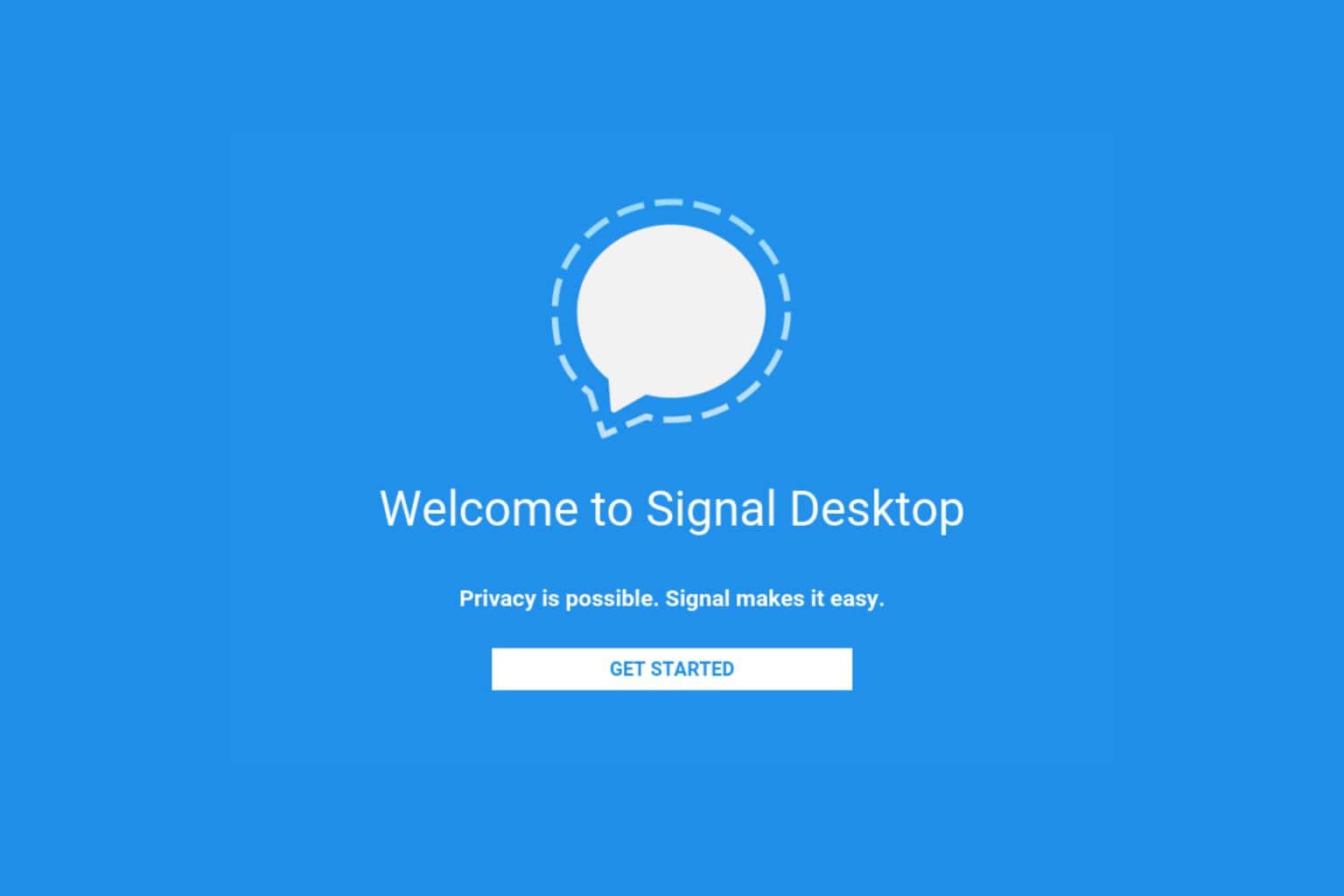
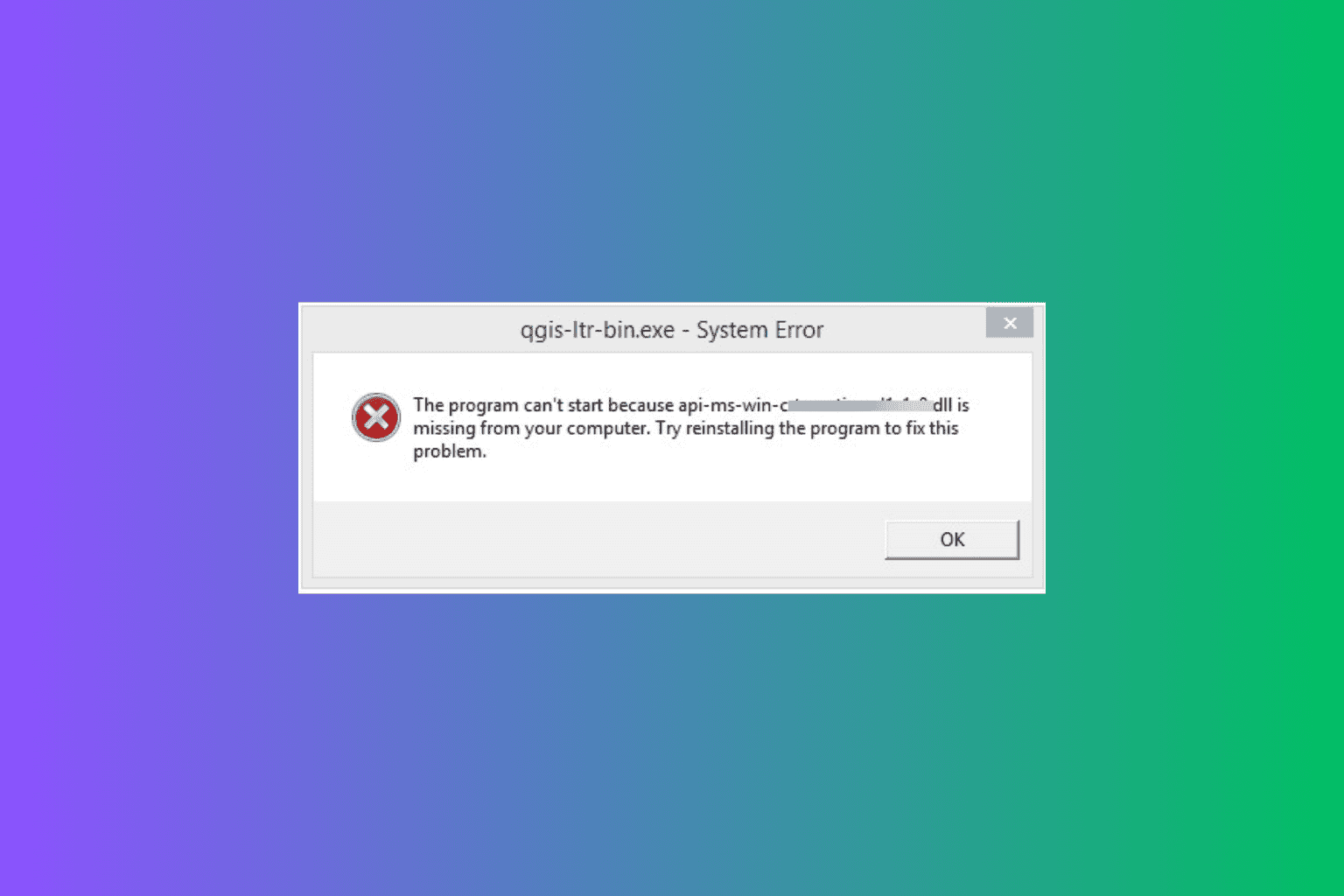
User forum
0 messages